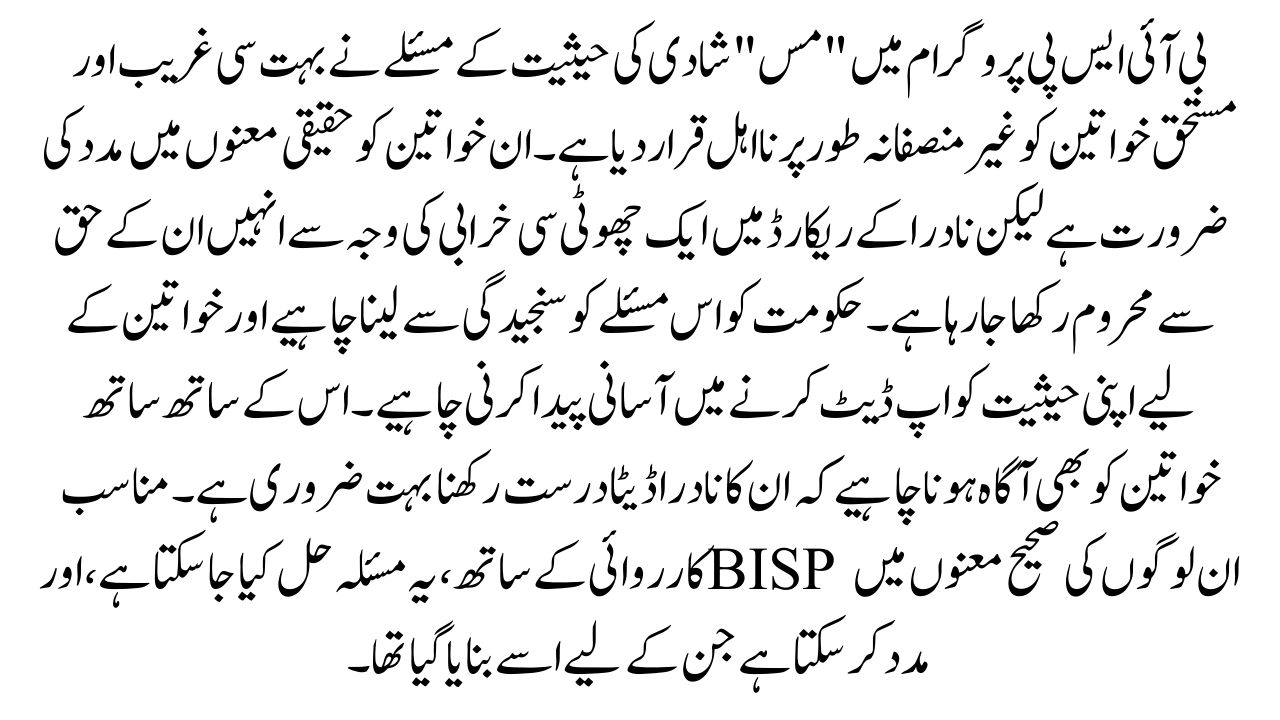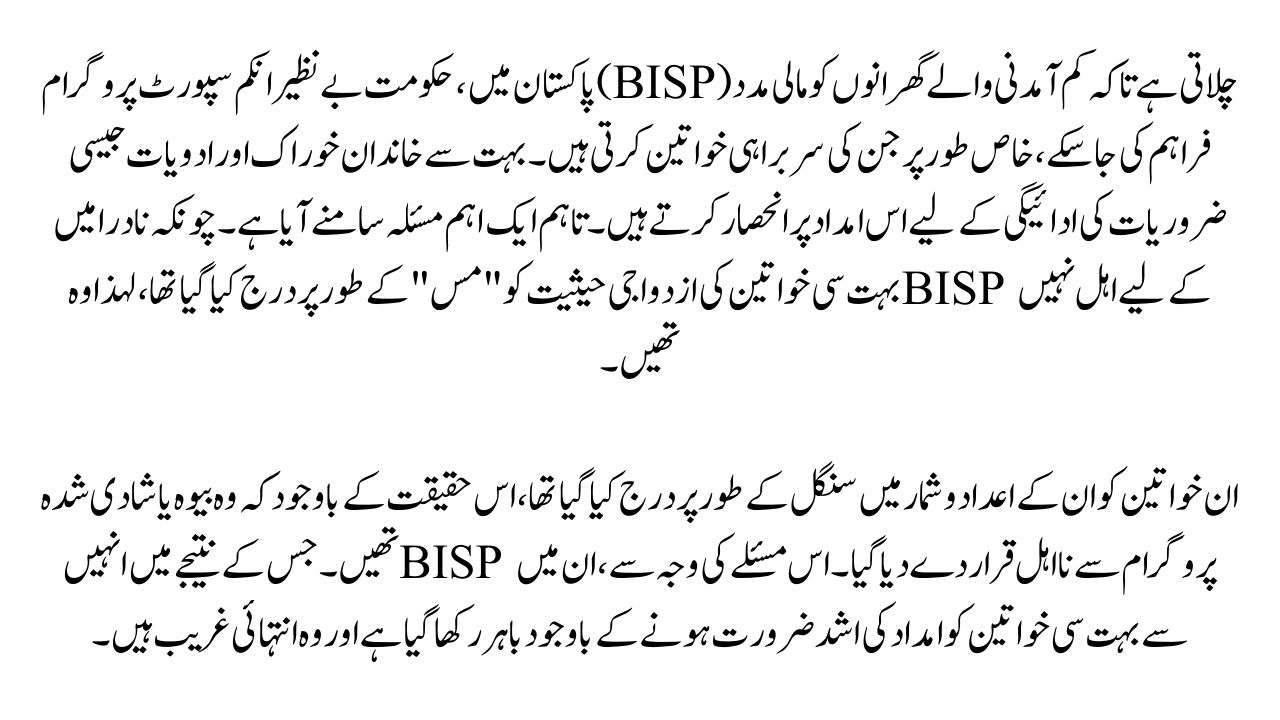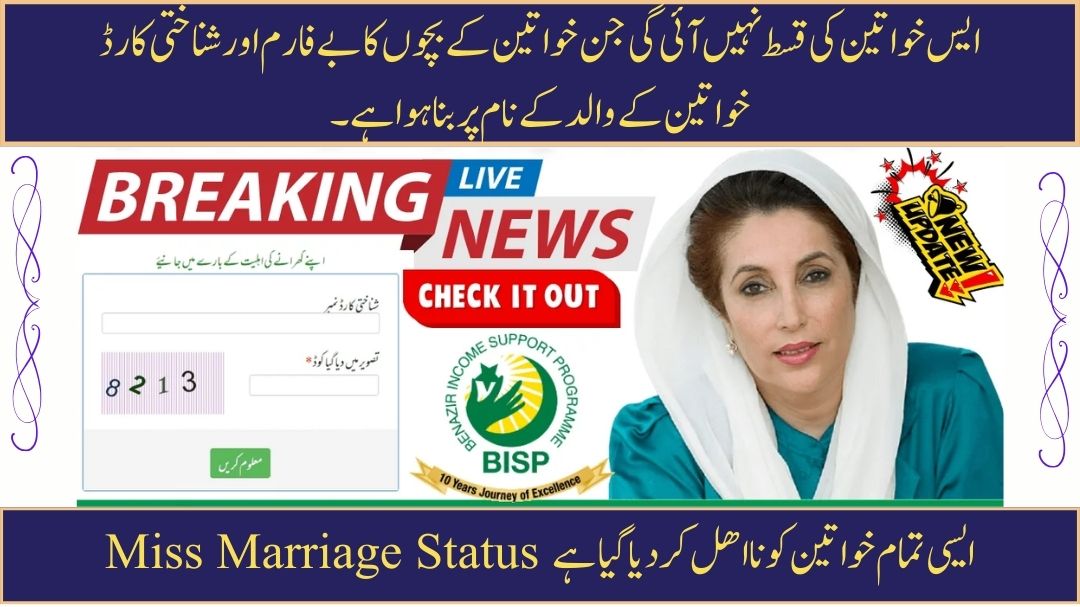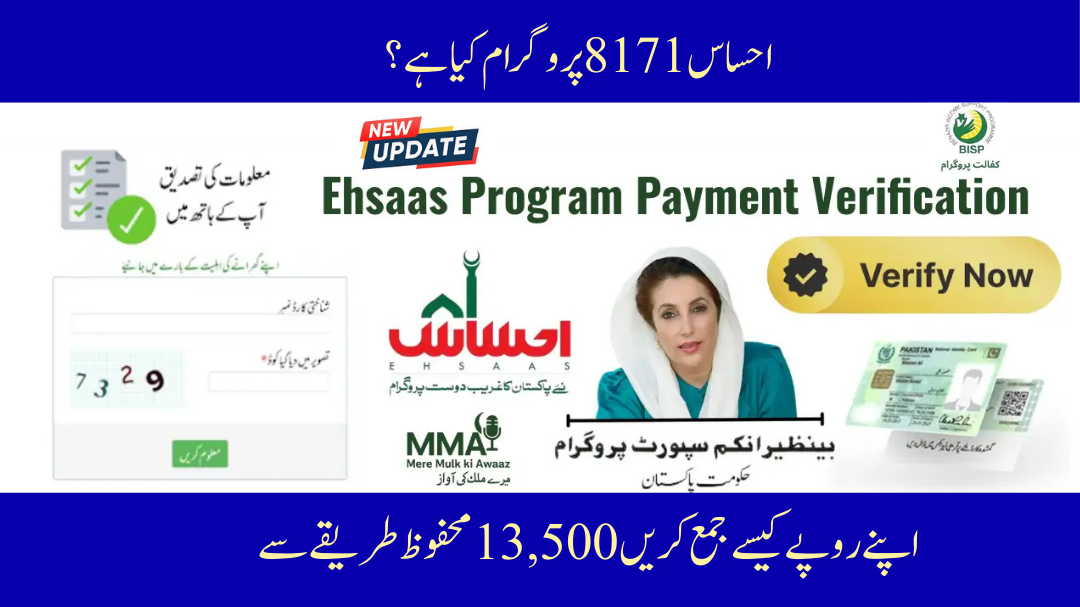In Pakistan, the government runs the Benazir Income Support Program (BISP) to provide financial assistance to low-income households, particularly those headed by women. Many families rely on this assistance to pay for necessities like food and medications. However, a significant issue has surfaced. Since many women’s marital status in NADRA was listed as “Miss,” they were not eligible for BISP.
These ladies were listed as single in their statistics, despite the fact that they were either widowed or married. They were disqualified from the BISP program as a result. Due of this problem, many of these women are excluded even though they are in dire need of assistance and are extremely impoverished.
| Problem | Women disqualified from BISP due to “Miss” status |
|---|---|
| Reason | NADRA shows them as unmarried even if they are married |
| Impact | Rejection from financial aid meant for poor families |
| Solution | Update marital status at NADRA with correct documents |
What is “Miss Marriage Status”?
In Pakistan’s official records (NADRA), every woman is listed with a marital status. If a woman has never been married, she is listed as “Miss”. If she is married, she should be listed as “Mrs.”. If she is widowed or divorced, that should also be shown correctly.

The problem is that many married or widowed women have not updated their marital status in NADRA. Their record still shows them as “Miss”. When these women apply for BISP, the system checks their data. If the system sees “Miss” instead of “Mrs.”, it assumes the woman is not part of a poor family or not eligible. As a result, she is disqualified.
Why Is This a Big Problem in BISP?
The BISP program uses NADRA data to check:
-
Family information
-
Marital status
-
Income level
-
Number of family members
-
Widow status (if any)
If the data is not correct, the system automatically rejects the application. This is what is happening to thousands of poor women across Pakistan. Even though they are eligible, the system says they are not – just because of wrong marital status. You can visit official website
These women are not at fault. Many of them don’t know how NADRA works. Some of them live in villages or far-off areas where access to NADRA offices is difficult. Others cannot afford the fee or don’t know they need to update their records after marriage.
How Are Women Affected by This Issue?
This issue has caused a lot of pain and stress to many women. Examples include:
-
Widows: Women whose husbands have died, but NADRA still shows them as unmarried.
-
Housewives: Poor married women who live with their husbands but their CNIC still says “Miss”.
-
Single mothers: Women taking care of children alone, but not being counted in any family tree.
-
Old women: Elderly women who never updated their marital status in their whole life.
These women need money to survive, but the system is rejecting them.
Why Is NADRA Data So Important?
NADRA keeps all records of the people of Pakistan. These records are used by government programs like BISP to make decisions. NADRA keeps the following:
-
Name
-
CNIC number
-
Marital status
-
Family tree
-
Fingerprints and photo
If a woman’s record is wrong, BISP or any other program will not approve her. That is why it is very important to update NADRA data after marriage or if the husband dies.
What Can Women Do to Fix the Problem?
If your BISP application was rejected because of the “Miss” status, you must do the following:
-
Visit your nearest NADRA office.
-
Take your original CNIC, marriage certificate (Nikah Nama), and your husband’s CNIC.
-
If your husband has died, take his death certificate.
-
Request NADRA to change your status from “Miss” to “Mrs.” or “Widow”.
-
Make sure your name appears in your family tree correctly.
Once your data is corrected, reapply for the BISP program or wait for the next verification.
What Should the Government Do?
This is not only the responsibility of women. The government also needs to take action. Suggestions include:
-
Start awareness campaigns in rural areas.
-
Set up special NADRA camps for women to update their data.
-
Use mobile NADRA vans to reach far-off villages.
-
Provide free services for poor women to update marital status.

FAQs
Why was my BISP application rejected even though I’m married?
Your application may be rejected because NADRA still shows your status as “Miss” instead of “Mrs.”.
How can I update my marriage status in NADRA?
Visit a NADRA office with your CNIC, your husband’s CNIC, and your marriage certificate to request an update.
What if my husband has passed away?
Bring your husband’s death certificate to NADRA and request your status to be changed to “Widow”.
Can I reapply for BISP after updating my marital status?
Yes, after updating your NADRA record, you can reapply or wait for the next eligibility check.
Conclusion
The “Miss” marriage status problem in the BISP program has caused many poor and deserving women to be unfairly disqualified. These women are in real need of help, but just because of a small error in NADRA records, they are being denied their right. The government must take this issue seriously and make it easier for women to update their status. At the same time, women should also be aware that keeping their NADRA data correct is very important. With proper action, this problem can be solved, and BISP can truly help the people it was made for.



